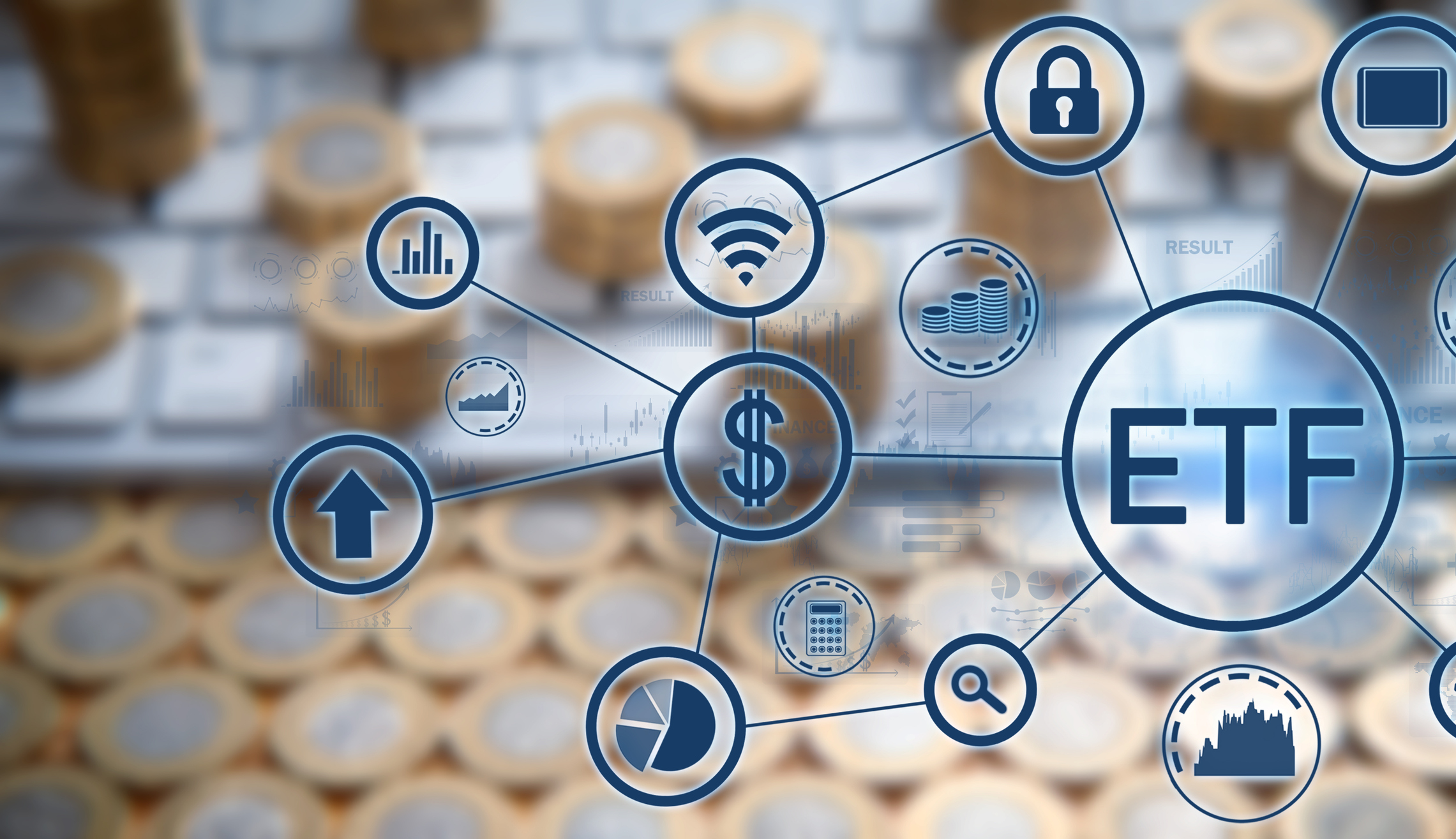3 ETFs for the Trump Presidency
Stock market volatility has picked up since Inauguration Day. These ETFs can help investors can navigate the ups and down of the second Trump era.


Profit and prosper with the best of Kiplinger's advice on investing, taxes, retirement, personal finance and much more. Delivered daily. Enter your email in the box and click Sign Me Up.
You are now subscribed
Your newsletter sign-up was successful
Want to add more newsletters?

Delivered daily
Kiplinger Today
Profit and prosper with the best of Kiplinger's advice on investing, taxes, retirement, personal finance and much more delivered daily. Smart money moves start here.

Sent five days a week
Kiplinger A Step Ahead
Get practical help to make better financial decisions in your everyday life, from spending to savings on top deals.

Delivered daily
Kiplinger Closing Bell
Get today's biggest financial and investing headlines delivered to your inbox every day the U.S. stock market is open.

Sent twice a week
Kiplinger Adviser Intel
Financial pros across the country share best practices and fresh tactics to preserve and grow your wealth.

Delivered weekly
Kiplinger Tax Tips
Trim your federal and state tax bills with practical tax-planning and tax-cutting strategies.

Sent twice a week
Kiplinger Retirement Tips
Your twice-a-week guide to planning and enjoying a financially secure and richly rewarding retirement

Sent bimonthly.
Kiplinger Adviser Angle
Insights for advisers, wealth managers and other financial professionals.

Sent twice a week
Kiplinger Investing Weekly
Your twice-a-week roundup of promising stocks, funds, companies and industries you should consider, ones you should avoid, and why.

Sent weekly for six weeks
Kiplinger Invest for Retirement
Your step-by-step six-part series on how to invest for retirement, from devising a successful strategy to exactly which investments to choose.
President Donald Trump wasted no time getting to work post-inauguration. Between January 20 and March 18, he signed a total of 93 executive orders. Many of these focus on his administration's aggressive cost-cutting measures under the newly created Department of Government Efficiency (DOGE), while others impact energy, healthcare, the rollback of diversity, equity, and inclusion (DEI) initiatives and, of course, tariffs.
While not all of these are relevant to markets, some certainly are – and investors clearly agree. Just take a look at the Cboe Volatility Index, or VIX, which surged nearly 20% in February. And in mid-March, the VIX hit its highest level since the August stock market crash.
Often referred to as Wall Street's "fear gauge," the VIX measures expected volatility in the S&P 500 based on options pricing. When uncertainty spikes – whether due to economic concerns, geopolitical events or shifting policy out of Washington – so does the VIX, signaling heightened investor anxiety.
From just $107.88 $24.99 for Kiplinger Personal Finance
Become a smarter, better informed investor. Subscribe from just $107.88 $24.99, plus get up to 4 Special Issues

Sign up for Kiplinger’s Free Newsletters
Profit and prosper with the best of expert advice on investing, taxes, retirement, personal finance and more - straight to your e-mail.
Profit and prosper with the best of expert advice - straight to your e-mail.
That said, uncertainty doesn't have to mean losses. There are many ways to position a portfolio to manage volatility and even capitalize on it.
Exchange-traded funds (ETFs) provide a convenient way for investors to diversify risk from a second Trump presidency while helping them stay the course. Here's a look at three of the best ETFs for investors to consider.
Harvest higher volatility with covered calls
One highly popular actively managed ETF benefiting from market volatility is the JPMorgan Equity Premium Income ETF (JEPI), which has amassed $39 billion in assets under management.
JEPI's strategy is twofold. First, it selects a subset of S&P 500 stocks with historically lower volatility, aiming to provide a smoother return profile than the broader index.
Second, it enhances income by selling covered calls on the S&P 500 through equity-linked notes (ELNs), which is where heightened volatility comes into play.
Covered calls work by selling the future upside of an asset or index in exchange for an immediate cash premium. The value of this premium depends on several factors, including the time remaining until the call expires, how far the strike price is from the market price, and – critically – the volatility of the underlying asset.
Higher volatility increases option premiums, meaning that in turbulent markets, JEPI's covered call overlay tends to generate more income.
Even better, if markets remain rangebound due to ongoing Trump-related uncertainty and lofty valuations, it bodes well for covered call strategies.
These approaches tend to outperform when stocks trade sideways because they keep collecting premium income without sacrificing as much upside as they would in a strong bull market.
Right now, JEPI is yielding 7.2% on a 30-day SEC basis, with monthly distributions. Despite being actively managed, it remains relatively affordable with a 0.35% expense ratio.
Learn more about JEPI at the J.P. Morgan provider site.
Mitigate sector concentration with equal weighting
The current composition of the S&P 500 Index is heavily skewed, with a roughly 32% allocation to tech stocks. This concentration is the result of the S&P 500's market-cap weighting, where the largest companies receive the highest weightings, combined with a decade of outperformance by technology giants.
For better or worse, Big Tech is now firmly in Washington, D.C.'s crosshairs. Several high-profile tech leaders – including former Amazon (AMZN) CEO Jeff Bezos, Meta Platforms (META) CEO Mark Zuckerberg, Alphabet (GOOGL) CEO Sundar Pichai and Tesla (TSLA) CEO Elon Musk – attended Trump's inauguration, but there's no telling what policies may emerge in the coming years.
Some of these firms have already faced antitrust lawsuits, and regulatory scrutiny could increase further under the current administration should Trump's whims change.
One way to reduce concentration risk while still investing in the S&P 500's basket of stocks is through the Invesco S&P 500 Equal Weight ETF (RSP).
Unlike traditional S&P 500 ETFs that assign higher weightings to the biggest companies, RSP gives each stock an equal 0.2% allocation at periodic rebalances. This prevents any single sector – especially technology – from dominating the portfolio.
While RSP carries a higher expense ratio of 0.2% compared to the lowest-cost S&P 500 ETFs, it has still delivered strong performance. Since its inception in April 2003, RSP has generated an annualized total return (price change plus dividends) of 11.1% – outpacing the S&P 500's 10.4% return.
Learn more about RSP at the Invesco provider site.
Stay the course with low-cost global diversification
Donald Trump is not the first president – and won't be the last – to shake up markets with policy decisions. Past administrations have implemented drastic measures that initially spooked investors, only for the global economy to continue its upward trajectory.
George W. Bush's invasion of Iraq in 2003 led to surging oil prices and geopolitical uncertainty. Barack Obama's Dodd-Frank Act in 2010 introduced sweeping financial regulations that many feared would stifle economic growth.
Yet, in each case, markets adapted, and long-term investors were rewarded for staying the course. Despite short-term volatility, the global stock market has a long history of resilience.
Regardless of U.S. policy shifts, companies worldwide will continue to generate earnings, buy back shares, reinvest in growth and pay dividends. The long-term trend remains intact.
Sometimes, the best move is inaction. Investors who hold a broad global ETF like the Vanguard Total World Stock ETF (VT) – which holds over 9,800 stocks from both developed and emerging markets for a 0.06% expense ratio – might be best served by simply staying patient and tuning out the noise.
If your investment thesis is that the global economy will continue growing over the next several decades, then it shouldn't matter whether the next dominant player is the U.S., China or another country. Long-term investing is about staying the course, regardless of who occupies the White House.
Learn more about VT at the Vanguard provider site.
Related content
Profit and prosper with the best of Kiplinger's advice on investing, taxes, retirement, personal finance and much more. Delivered daily. Enter your email in the box and click Sign Me Up.
Tony started investing during the 2017 marijuana stock bubble. After incurring some hilarious losses on various poor stock picks, he now adheres to Bogleheads-style passive investing strategies using index ETFs. Tony graduated in 2023 from Columbia University with a Master's degree in risk management. He holds the Certified ETF Advisor (CETF®) designation from The ETF Institute. Tony's work has also appeared in U.S. News & World Report, USA Today, ETF Central, The Motley Fool, TheStreet, and Benzinga. He is the founder of ETF Portfolio Blueprint.
-
 Quiz: Do You Know How to Avoid the "Medigap Trap?"
Quiz: Do You Know How to Avoid the "Medigap Trap?"Quiz Test your basic knowledge of the "Medigap Trap" in our quick quiz.
-
 5 Top Tax-Efficient Mutual Funds for Smarter Investing
5 Top Tax-Efficient Mutual Funds for Smarter InvestingMutual funds are many things, but "tax-friendly" usually isn't one of them. These are the exceptions.
-
 AI Sparks Existential Crisis for Software Stocks
AI Sparks Existential Crisis for Software StocksThe Kiplinger Letter Fears that SaaS subscription software could be rendered obsolete by artificial intelligence make investors jittery.
-
 5 Top Tax-Efficient Mutual Funds for Smarter Investing
5 Top Tax-Efficient Mutual Funds for Smarter InvestingMutual funds are many things, but "tax-friendly" usually isn't one of them. These are the exceptions.
-
 Why Invest In Mutual Funds When ETFs Exist?
Why Invest In Mutual Funds When ETFs Exist?Exchange-traded funds are cheaper, more tax-efficient and more flexible. But don't put mutual funds out to pasture quite yet.
-
 Social Security Break-Even Math Is Helpful, But Don't Let It Dictate When You'll File
Social Security Break-Even Math Is Helpful, But Don't Let It Dictate When You'll FileYour Social Security break-even age tells you how long you'd need to live for delaying to pay off, but shouldn't be the sole basis for deciding when to claim.
-
 I'm an Opportunity Zone Pro: This Is How to Deliver Roth-Like Tax-Free Growth (Without Contribution Limits)
I'm an Opportunity Zone Pro: This Is How to Deliver Roth-Like Tax-Free Growth (Without Contribution Limits)Investors who combine Roth IRAs, the gold standard of tax-free savings, with qualified opportunity funds could enjoy decades of tax-free growth.
-
 One of the Most Powerful Wealth-Building Moves a Woman Can Make: A Midcareer Pivot
One of the Most Powerful Wealth-Building Moves a Woman Can Make: A Midcareer PivotIf it feels like you can't sustain what you're doing for the next 20 years, it's time for an honest look at what's draining you and what energizes you.
-
 Stocks Make More Big Up and Down Moves: Stock Market Today
Stocks Make More Big Up and Down Moves: Stock Market TodayThe impact of revolutionary technology has replaced world-changing trade policy as the major variable for markets, with mixed results for sectors and stocks.
-
 I'm a Wealth Adviser Obsessed With Mahjong: Here Are 8 Ways It Can Teach Us How to Manage Our Money
I'm a Wealth Adviser Obsessed With Mahjong: Here Are 8 Ways It Can Teach Us How to Manage Our MoneyThis increasingly popular Chinese game can teach us not only how to help manage our money but also how important it is to connect with other people.
-
 Looking for a Financial Book That Won't Put Your Young Adult to Sleep? This One Makes 'Cents'
Looking for a Financial Book That Won't Put Your Young Adult to Sleep? This One Makes 'Cents'"Wealth Your Way" by Cosmo DeStefano offers a highly accessible guide for young adults and their parents on building wealth through simple, consistent habits.
